Related Research Articles

Central European University is a private research university with a campus in Vienna and a non-degree, research and civic engagement presence in Budapest. The university offers graduate and undergraduate programs in the social sciences and humanities. Admissions are classified as highly selective with an acceptance rate of 13%. All CEU programs and courses are accredited in Austria and the United States.
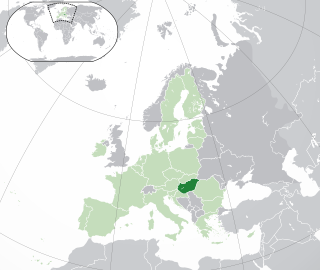
Lesbian, gay, bisexual, and transgender (LGBTQ) people in Hungary face legal and social challenges not experienced by non-LGBT residents. Homosexuality is legal in Hungary for both men and women. Discrimination on the basis of sexual orientation and sex is banned in the country. However, households headed by same-sex couples are not eligible for all of the same legal rights available to heterosexual married couples. Registered partnership for same-sex couples was legalised in 2009, but same-sex marriage remains banned. The Hungarian government has passed legislation that restricts the civil rights of LGBT Hungarians – such as ending legal recognition of transgender Hungarians and banning LGBT content and displays for minors. This trend continues under the Fidesz government of Viktor Orbán. In June 2021, Hungary passed an anti-LGBT law on banning "homosexual and transexual propaganda" effective since 1 July. The law has been condemned by seventeen member states of the European Union. In July 2020, the European Commission started legal action against Hungary and Poland for violations of fundamental rights of LGBTQI people, stating: "Europe will never allow parts of our society to be stigmatized."
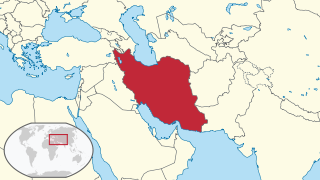
Transgender rights in Iran are limited, with a narrow degree of official recognition of transgender identities by the government, but with trans individuals facing very high levels of discrimination, from the law, the state, and from wider society.

Lesbian, gay, bisexual, transgender, and queer (LGBTQ) people in Turkey face legal challenges not experienced by non-LGBTQ residents, though the overall situation is considered to be less repressive when compared to most other Muslim-majority countries.
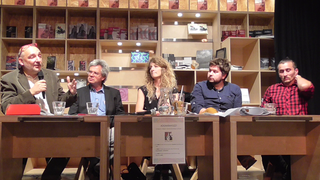
The Hungarian Helsinki Committee is a non-governmental human rights organization founded in 1989 and based in Budapest, Hungary. The HHC is a member of the International Helsinki Federation for Human Rights and the European Council on Refugees and Exiles. The HHC defines itself as monitoring the respect for human rights protected by international human rights instruments, to inform the public about human rights violations and to provide victims of human rights abuse with free legal assistance. It is also linked with the OMCT and is a member organisation of the European Council on Refugees and Exiles (ECRE).
Hungary has recognized registered partnerships since 1 July 2009, offering same-sex couples nearly all the rights and benefits of marriage. Unregistered cohabitation for same-sex couples was recognised and placed on equal footing with the unregistered cohabitation of different-sex couples in 1996. However, same-sex marriage is prohibited by the 2011 Constitution of Hungary, which took effect in January 2012.

Magyar Gárda Mozgalom, founded by Magyar Gárda Hagyományőrző és Kulturális Egyesület was a patriotic-nationalistic association somewhat mimicking an army in its organisation and paraphernalia. It was coined a paramilitary, a party-militia, or – sarcastically – an operetta-guard by its opponents and certain media outlets, even though it was never armed. It was in varyingly close relationship with the Jobbik party in Hungary. It was founded through an "oath of loyalty to Hungary" by its members in Buda Castle, Budapest, on 25 August 2007. It was dissolved by the Budapest Tribunal on 2 July 2009. The president of the Association was Gábor Vona, and it had such prominent members as former (1990–1994) defence minister Lajos Für and actor Mátyás Usztics.
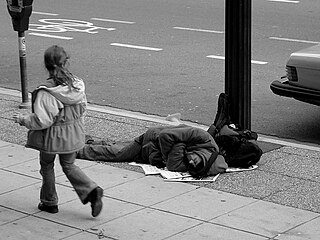
Anti-homelessness legislation can take two forms: legislation that aims to help and re-house homeless people; and legislation that is intended to send homeless people to homeless shelters compulsorily, or to criminalize homelessness and begging.
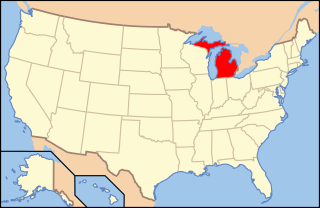
Lesbian, gay, bisexual, and transgender (LGBTQ) people in the U.S. state of Michigan enjoy the same rights as non-LGBTQ people. Michigan in June 2024 was ranked "the most welcoming U.S. state for LGBT individuals". Same-sex sexual activity is legal in Michigan under the U.S. Supreme Court case Lawrence v. Texas, although the state legislature has not repealed its sodomy law. Same-sex marriage was legalised in accordance with 2015's Obergefell v. Hodges decision. Discrimination on the basis of both sexual orientation and gender identity is unlawful since July 2022, was re-affirmed by the Michigan Supreme Court - under and by a 1976 statewide law, that explicitly bans discrimination "on the basis of sex". The Michigan Civil Rights Commission have also ensured that members of the LGBT community are not discriminated against and are protected in the eyes of the law since 2018 and also legally upheld by the Michigan Supreme Court in 2022. In March 2023, a bill passed the Michigan Legislature by a majority vote - to formally codify both "sexual orientation and gender identity" anti-discrimination protections embedded within Michigan legislation. Michigan Governor Gretchen Whitmer signed the bill on March 16, 2023. In 2024, Michigan repealed “the last ban on commercial surrogacy within the US” - for individuals and couples and reformed the parentage laws, that acknowledges same sex couples and their families with children.

The City is For All is a volunteer based grassroots organization founded in 2009. It operates in Budapest and Pécs in Hungary. Homeless and non-homeless activists work together for housing rights and social justice.
Picture the Homeless (PTH) is an American homeless person–led rights organization founded in 1999 by Lewis Haggins and Anthony Williams. It focuses on human rights, housing, police violence and other social justice issues. It was housed originally in Judson Memorial Church, which still hosts its Longest Night of the Year memorial event, and was located for a time in El Barrio and 2427 Morris Avenue in the Bronx. It is currently based at 104B E 126th Street in Manhattan.

Lesbian, gay, bisexual, transgender, and queer (LGBTQ) people in the U.S. state of Mississippi face legal challenges and discrimination not experienced by non-LGBTQ residents. LGBT rights in Mississippi are limited in comparison to other states. Same-sex sexual activity is legal in Mississippi as a result of the U.S. Supreme Court decision in Lawrence v. Texas. Same-sex marriage has been recognized since June 2015 in accordance with the Supreme Court's decision in Obergefell v. Hodges. State statutes do not address discrimination on the basis of sexual orientation and gender identity; however, the U.S. Supreme Court's ruling in Bostock v. Clayton County established that employment discrimination against LGBTQ people is illegal under federal law. The state capital Jackson and a number of other cities provide protections in housing and public accommodations as well.

Gergely Szilveszter Karácsony is a Hungarian politician, political scientist and current Mayor of Budapest. He previously served as member of the National Assembly (MP) from 2010 to 2014 and Mayor of Zugló from 2014 to 2019.

Máté Kocsis is a Hungarian jurist, sports administrator and politician, who served as Mayor of Józsefváros from 2009 to 2018. He also represents Józsefváros in the National Assembly of Hungary from 2010 to 2014, and since 2018. He is the current leader of the Fidesz parliamentary group. Since 2015 he is the president of the Hungarian Handball Federation.
LGBT history in Hungary, while an increasingly debated political and civil rights issue, has received very little scholarly attention. Historians of Hungary have clearly ignored sexuality, especially queer or non-normative sexuality, with the exception of prostitution. Reasons for this, to a large extent, have to do with the availability of historical sources, with no historical memoirs and testaments of Hungarian LGBT people yet found and the 'Homosexual Registry' of the police lost or destroyed after 1989.

The fourth Orbán government was the Government of Hungary from 18 May 2018 to 24 May 2022, after the 2018 parliamentary elections, led by Viktor Orbán.
Censorship of LGBTQ issues is practised by some countries around the world. It may take a variety of forms, including anti-LGBTQ curriculum laws in some states of the United States, the Russian gay propaganda law prohibiting the "promotion of non-traditional sexual relationships", the Hungarian anti-LGBT law banning "content portraying or promoting sex reassignment or homosexuality", and laws in Muslim-majority states such as Afghanistan, Saudi Arabia, Pakistan, and Malaysia prohibiting advocacy that offends Islamic morality.
Events in the year 2021 in Hungary.
The Act LXXIX of 2021 on taking more severe action against paedophile offenders and amending certain Acts for the protection of children, often mentioned in English-language media as Hungary's anti-LGBT law, are legislative amendments that were approved by the Hungarian Parliament on 15 June 2021, on a 157–1 vote with most opposition parties at the time boycotting the vote. It was condemned by human rights groups and left-wing Hungarian opposition parties as discriminatory against the LGBT community. The EU and the United States consider the amendments to be discriminatory anti-LGBT restrictions. By contrast, most Eastern European EU countries did not take a public stance, apart from Poland, which supported the Hungarian position.
Human rights in Hungary are governed by the Constitution of Hungary, laws passed by the National Assembly, and oversight of international organizations such as the Council of Europe. Human rights groups such as Amnesty International and Human Rights Watch have raised concern for the status of human rights in Hungary under the rule of Viktor Orbán and the Fidesz party since 2010.
References
- 1 2 3 Welle (www.dw.com), Deutsche. "Hungary's homeless ban: When poverty becomes a crime | DW | 15.10.2018". DW.COM. Retrieved 2021-12-29.
- ↑ "How to help the homeless". The Economist. 7 December 2013. Retrieved 28 February 2018.
- ↑ "Hungary: Outstanding Human Rights Concerns". Human Rights Watch. 18 February 2015. Retrieved 28 February 2018.
- ↑ Budapest, Daniel McLaughlin in. "Hungary's rough sleepers go into hiding as homelessness made illegal". The Irish Times. Retrieved 2021-12-29.